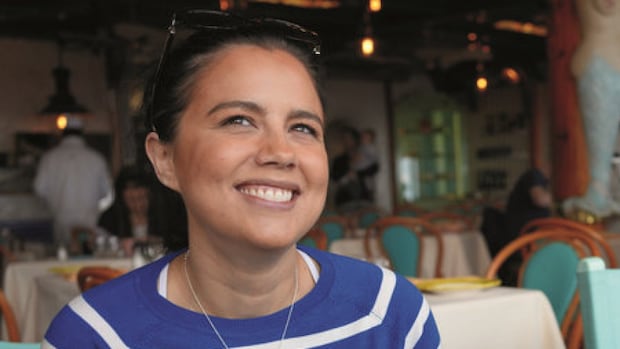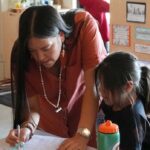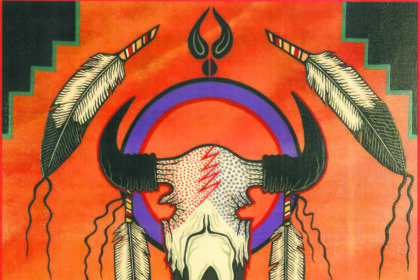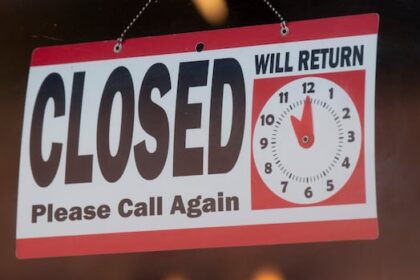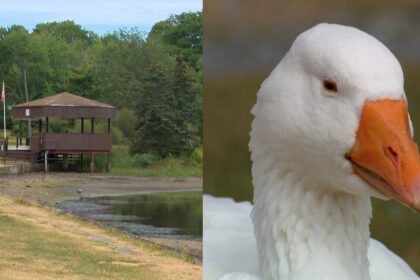As It Happens24:37How this Métis doctor slowly came to see herself as Sixties Scoop survivorIt took a long time for Dr. Brittany Penner to become comfortable referring to herself as a survivor of the Sixties Scoop.Born in 1989 to a Métis woman who willingly gave her up for adoption, Penner’s story doesn’t neatly fit into the familiar narrative of Indigenous children being ripped from their mothers’ arms and shipped off to white families in faraway places.But the result was the same. Raised by Caucasian parents, she grew up alienated from her own culture.Now a family physician and an expectant mother herself, Penner is coming to terms with her identity as an Indigenous woman and a Sixties Scoop survivor — even though the latter is a term that her parents, both birth and adoptive, object to.”I think I made peace with the fact that this is my story and my recollection and my perspective,” she told CBC Radio’s As It Happens host Nil Kӧksal.”They are very much allowed to have their own emotions about it and their own perspective on it, and both can co-exist.”Penner joined Kӧksal on Canada’s National Day for Truth and Reconciliation to discuss her new book, Children Like Us: A Métis Woman’s Memoir of Family, Identity and Walking Herself Home.’Distorted sense of normalcy’Penner was raised by a Mennonite family on a farm near Steinbach, Man., a city she would later learn is not far from where her birth mother lives.She had 21 foster siblings who came and went throughout her childhood, and even more foster cousins.”Me and my cousins and my siblings, we were all Indigenous, all the ones who were adopted and fostered, at least,” Penner said.”There was this distorted sense of normalcy where there was no Indigenous child really being raised by their parents. We were all being raised by white parents. But that was our normal and we didn’t know any different.”Penner, born to a Métis mother and raised by adoptive Mennonite parents, says her childhood was not unhappy, but it was confusing. (Submitted by Brittany Penner)She and her foster siblings absorbed certain assumptions about Indigenous people from the adults around them, Penner said.”If you are Indigenous, you are not raised within your original family. And that’s just that,” she said. “It’s because there’s something defective about your culture and your family. That was kind of just the given.”Penner said she remembers the first time her adoptive mother explained her adoption to her, using three Barbie dolls: Barbie, Skipper and Dylan McKay from the teen drama Beverly Hills 9021.”This is how the story went: Skipper had a baby. She couldn’t take care of the baby, but Barbie and Dylan really wanted a baby, and so she gave them her baby,” she said.To her adoptive parents, it was as simple as that. But to Penner, it’s always been so much more complicated.WATCH | Memorial cloth bears names of children forced to attend residential schools:Memorial cloth names children forced to attend residential schoolsAt the National Day for Truth and Reconciliation ceremony in Ottawa, attendees lifted a cloth bearing the names of hundreds of thousands of children who were forced to attend residential schools in Canada.Penner said her childhood had ups and downs. Her relationship with her adoptive parents was fraught. There was love there, and there were plenty of happy childhood memories of playing outside with her foster siblings and cousins, chasing fireflies on warm summer nights.But there was always a sense of insecurity hanging over her head as she watched her foster relatives come and go. She often wondered: Would she be next?”My mom grew tired of that question very quickly. And so it wasn’t so much a reassurance as when a child gets up in the middle of the night, scared of the monsters in the closet or under the bed, and a parent is kind of like, ‘You’re fine. It’s fine.There’s nothing there,'” Penner said.”But it wasn’t a matter of monsters under the bed. It was a matter of very real social workers in a very real system that had already taken me and brought me to this family. And as far as I knew, there was nothing different between me and any of my foster relatives.”Breakthrough came in medical schoolAs a teenager, Penner said she began searching for answers about where she came from.”It was a very isolating and lonely time,” she said. “I didn’t have anyone to really talk with me or guide me through it or even anyone who had a compassionate ear, really.”She was in medical school when she finally made a breakthrough. A social worker she’d been in touch with called and told Penner her birth mother’s name: Crystal. She was floored.”As early as seven or eight, I literally asked my mom, ‘Can we change my name to Crystal?'” she said. “I was just enamoured with this name. I just thought it was the prettiest, [most] beautiful, coolest name, and I just thought that it suited me.”Penner, left, is shown as a child with her Ukrainian grandmother, her adoptive mother’s mother, whom she called Baba. (Submitted by Brittany Penner)When Penner finally met Crystal, it was everything she hoped for — exciting and hopeful, like coming home. But it came with other emotions, too.”The one thing I was not prepared for was the grief that also came with it,” she said.Grief was for everything she’d lost, the moments and milestones she’d missed.”Another big theme in my life, and subsequently the book, is this narrative that, well, if you’re going to feel anything, you need to just feel grateful,” Penner said.”You need to feel grateful for this white Mennonite family that took you in when they didn’t have to. And you need to feel grateful for all the things that your family did for you. And you need to feel grateful that you were given a different life.”You needed to feel grateful, grateful, grateful.”Breaking the cycle The Sixties Scoop refers to a period in Canada between 1951 and 1991, when thousands of Indigenous children were forcibly removed from their homes and placed with non-Indigenous families as far away as the United States and Europe.It overlapped with the final decades of Canada’s residential school system, during which 150,000 First Nations, Inuit and Métis children were taken from their families and forced to attend church-led boarding schools designed to assimilate them by stripping them of their language and culture.Penner wasn’t forcibly taken, nor was she sent far away. But her story, she said, is connected to Canada’s dark and continuing history of Indigenous family separation.She said her great-grandmother had to hide in the bush from Indian agents who wanted to take away her first-born daughter. Her grandmother’s first-born daughter was in and out of the child welfare system.Her mother, she knows, made a choice. But that choice was limited.”It was the system that decided where I went and to whom I went and what culture I [was] placed in,” she said. “That’s also a component of the Sixties Scoop.”Now Penner, a family physician and lecturer at the University of Manitoba’s Max Rady College of Medicine in Winnipeg, is expecting her own daughter. She wants to break the cycle.”I have this pervasive fear of having my child taken away, which I think makes very logical sense given my life experiences,” she said.”Pending that doesn’t happen, it will be the first time in over a hundred years in my direct line where there hasn’t been a government presence with the birth of our first child.”Children Like Us, published in Canada by Penguin Random House, was released this past summer.
Thursday, 5 Mar 2026
Canada – The Illusion
Search
Have an existing account?
Sign In
© 2022 Foxiz News Network. Ruby Design Company. All Rights Reserved.
You May also Like
- More News:
- history
- Standing Bear Network
- John Gonzalez
- ᐊᔭᐦᑊ ayahp — It happened
- Creation
- Beneath the Water
- Olympic gold medal
- Jim Thorpe
- type O blood
- the bringer of life
- Raven
- Wás’agi
- NoiseCat
- 'Sugarcane'
- The rivers still sing
- ᑲᓂᐸᐏᐟ ᒪᐢᑿ
- ᐅᑳᐤ okâw — We remember
- ᐊᓂᓈᐯᐃᐧᐣ aninâpêwin — Truth
- This is what it means to be human.
- Nokoma


